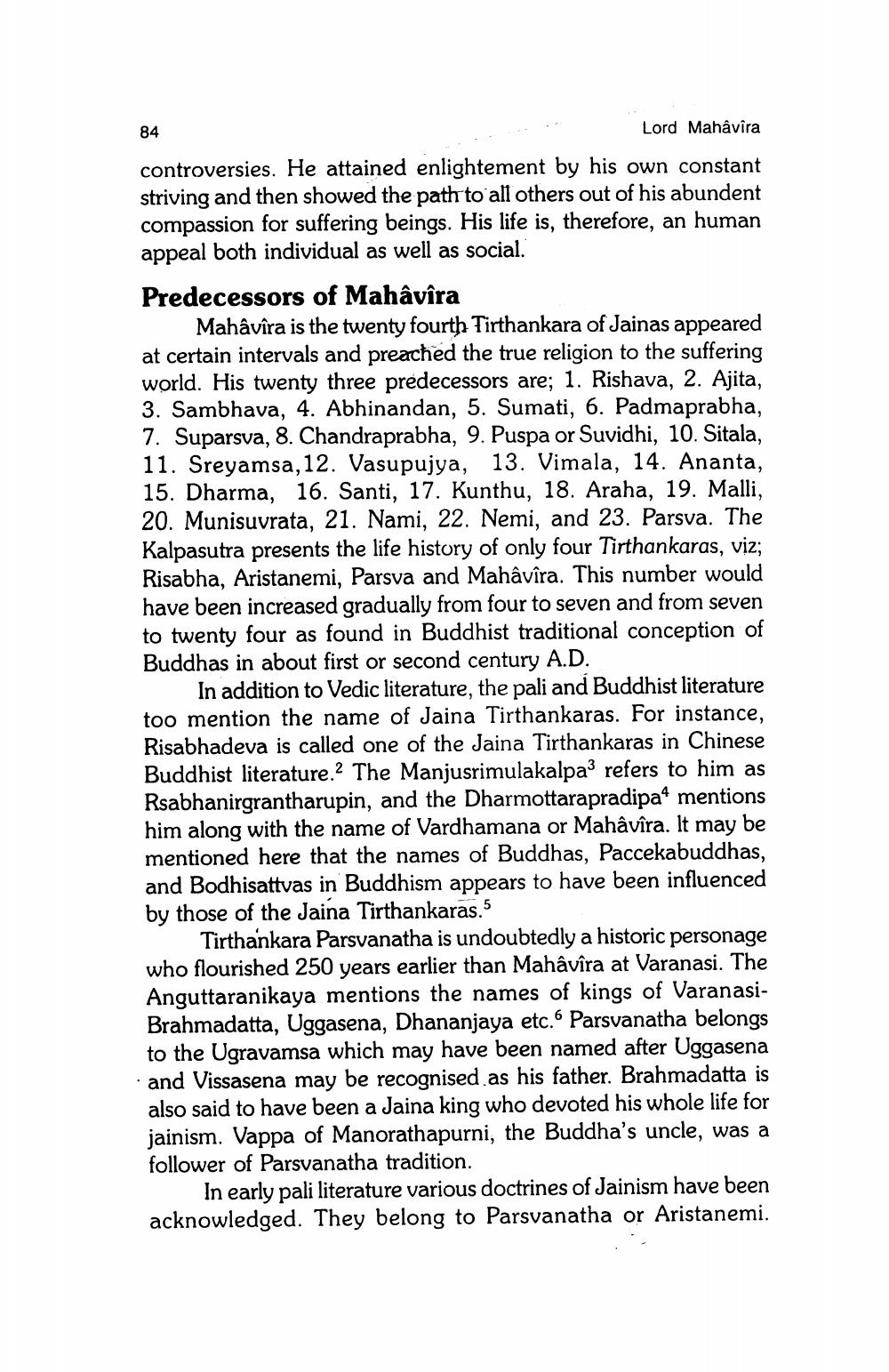________________
84
Lord Mahavira
controversies. He attained enlightement by his own constant striving and then showed the path to all others out of his abundent compassion for suffering beings. His life is, therefore, an human appeal both individual as well as social.
Predecessors of Mahâvîra
Mahâvîra is the twenty fourth Tirthankara of Jainas appeared at certain intervals and preached the true religion to the suffering world. His twenty three predecessors are; 1. Rishava, 2. Ajita, 3. Sambhava, 4. Abhinandan, 5. Sumati, 6. Padmaprabha, 7. Suparsva, 8. Chandraprabha, 9. Puspa or Suvidhi, 10. Sitala, 11. Sreyamsa, 12. Vasupujya, 13. Vimala, 14. Ananta, 15. Dharma, 16. Santi, 17. Kunthu, 18. Araha, 19. Malli, 20. Munisuvrata, 21. Nami, 22. Nemi, and 23. Parsva. The Kalpasutra presents the life history of only four Tirthankaras, viz; Risabha, Aristanemi, Parsva and Mahâvîra. This number would have been increased gradually from four to seven and from seven to twenty four as found in Buddhist traditional conception of Buddhas in about first or second century A.D.
In addition to Vedic literature, the pali and Buddhist literature too mention the name of Jaina Tirthankaras. For instance, Risabhadeva is called one of the Jaina Tirthankaras in Chinese Buddhist literature.2 The Manjusrimulakalpa refers to him as Rsabhanirgrantharupin, and the Dharmottarapradipat mentions him along with the name of Vardhamana or Mahâvîra. It may be mentioned here that the names of Buddhas, Paccekabuddhas, and Bodhisattvas in Buddhism appears to have been influenced by those of the Jaina Tirthankaras.5
Tirthankara Parsvanatha is undoubtedly a historic personage who flourished 250 years earlier than Mahâvîra at Varanasi. The Anguttaranikaya mentions the names of kings of VaranasiBrahmadatta, Uggasena, Dhananjaya etc. Parsvanatha belongs to the Ugravamsa which may have been named after Uggasena · and Vissasena may be recognised as his father. Brahmadatta is
also said to have been a Jaina king who devoted his whole life for jainism. Vappa of Manorathapurni, the Buddha's uncle, was a follower of Parsvanatha tradition.
In early pali literature various doctrines of Jainism have been acknowledged. They belong to Parsvanatha or Aristanemi.




